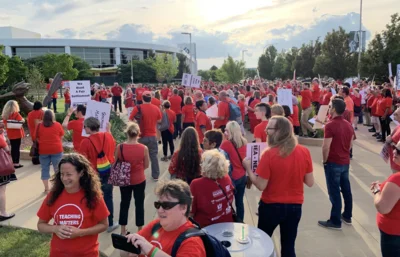Laura Hois | Contributed photo
Laura Hois | Contributed photo
Republican state House hopeful Laura Hois is warning that the one policy position Gov. J.B. Pritzker seems most inclined to bring to fruition could spell the end for many.
“The progressive tax would ruin Illinois’ small business industry and stop our economic recovery,” Hois told the DuPage Policy Journal. “Business owners faced with a better than 50% tax rate would give up and take their businesses to other states. If they are forced to leave, the state will stagnate and fall into decline and disrepair.”
A new Illinois Policy Institute analysis projects that small businesses across the state soon could be forced to pay as much as a 50.3% marginal income tax rate should the tax appearing on the Nov. 3 ballot in the form of a referendum question garner the support it needs for passage. Ignoring growing warnings from many that the tax stands to handcuff small business owners even more, the governor continues to push his signature proposal as one that will only mean higher tax rates for the state’s most affluent residents.
At around 60% of net job creation, small business owners rank as the state’s biggest job creators. But those numbers could soon be on the decline, with researchers finding an increase in the top marginal tax rate could mean a slide in the hiring practices of entrepreneurs and slumping earnings for workers.
“I think Gov. Pritzker believes he can get away with forcing one more tax hike onto good, hard-working Illinoisans,” added Hois, who is running against incumbent state Rep. Anne Stava-Murray (D-Naperville) in the 81st District. “But he and his fellow Democrats are making a big mistake. The people I talk to don’t trust Springfield politicians with more power. They know the TV ads pushing the progressive tax are deceptive and misleading.”
Hois argues there’s a better way to restore the state to the world of financial stability.
“Act now to restore trust in our government by helping people and business owners recover and succeed,” she said. “Trim the state’s per-resident spending to match that of Texas to save billions of dollars a year. This would eliminate the need for a tax increase. Provide low-interest loans, lighten the harsh COVID-19 restrictions, ease regulations and restrain spending. Encourage economic growth with friendlier business policies and job training programs.”






 Alerts Sign-up
Alerts Sign-up